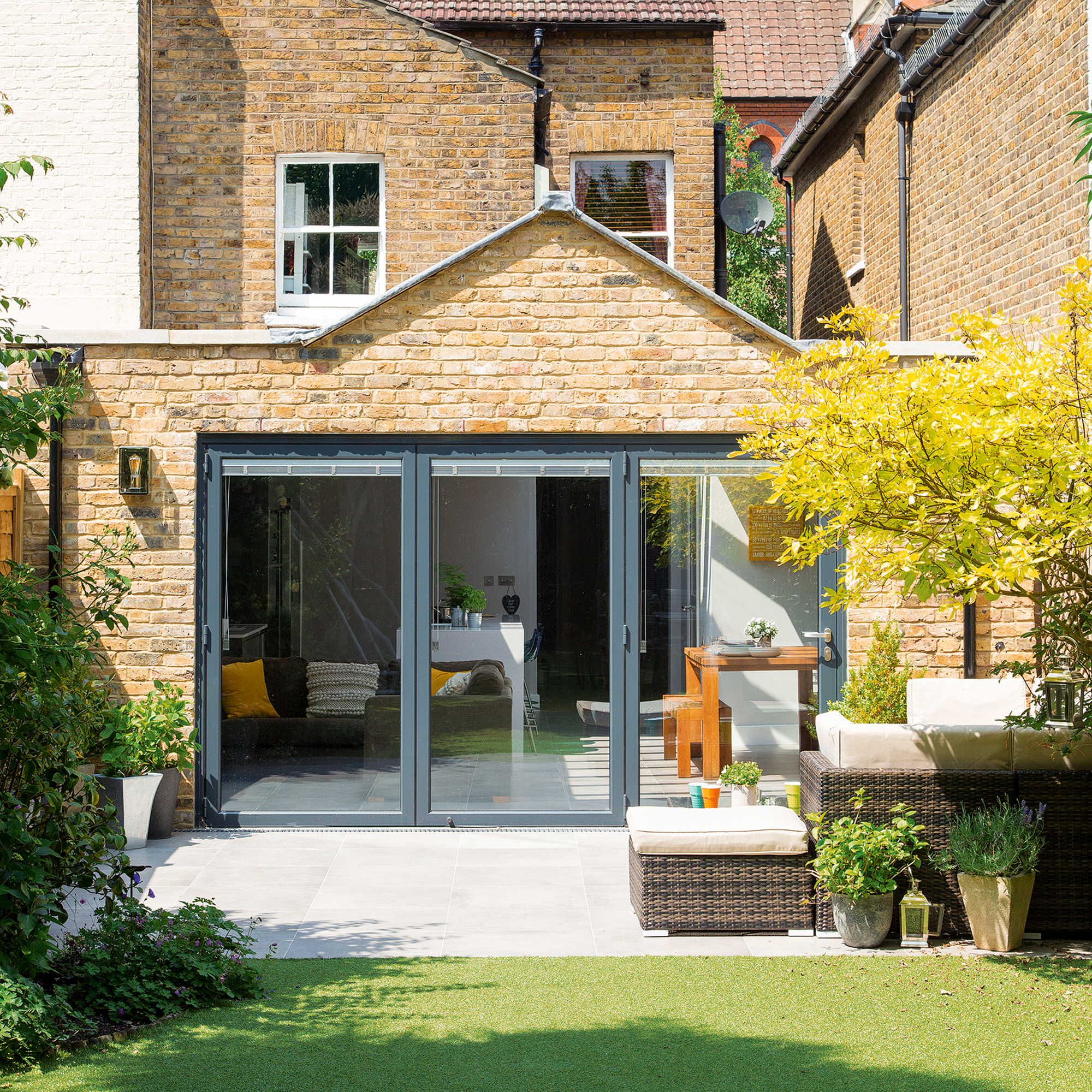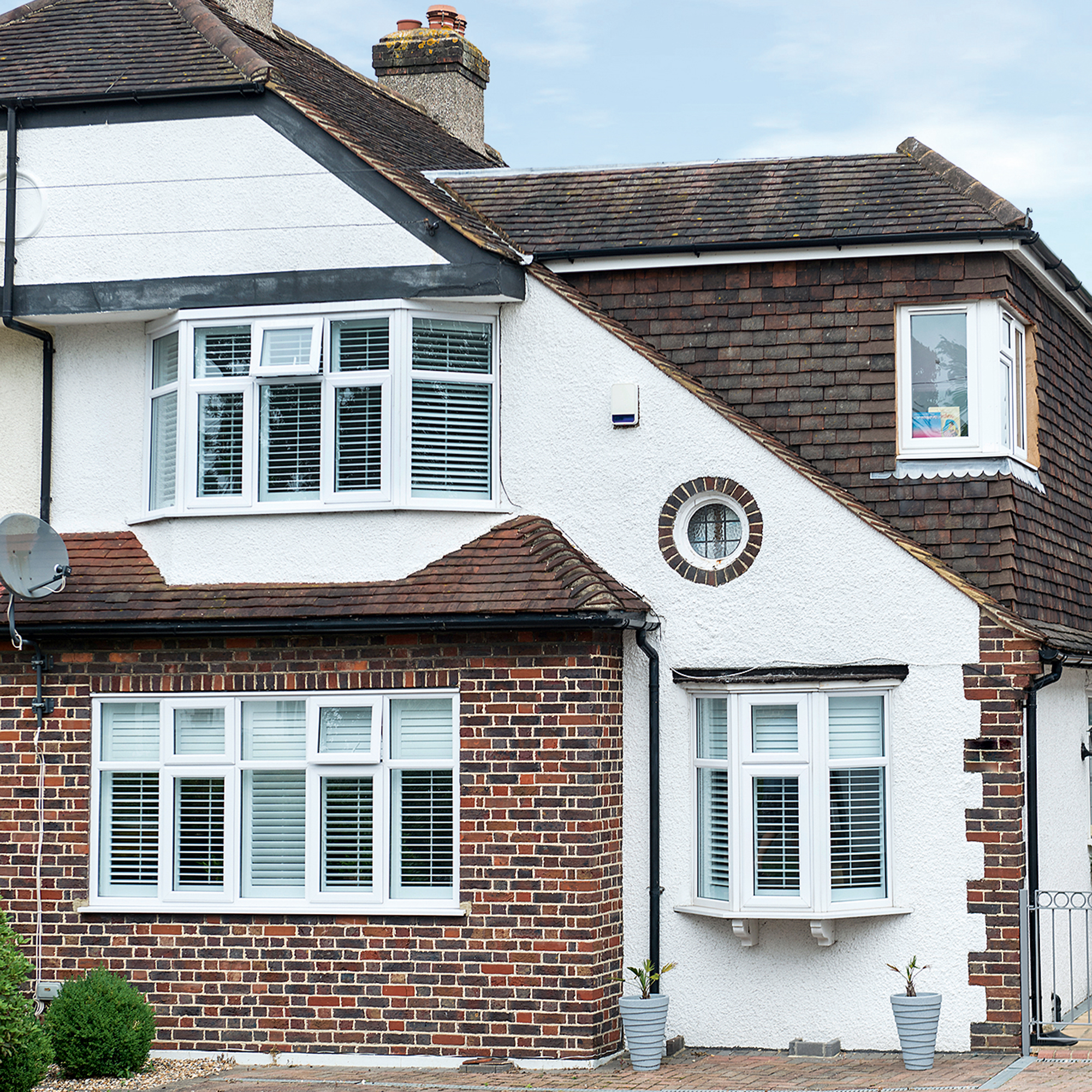Guarantor mortgages: what are they and how can they help you get on the property ladder?
Could a guarantor mortgage be the key to you getting on to the property ladder? This guide explains what you need to know
If the news of rising house prices has you despairing about becoming a homeowner, it’s worth finding out whether a guarantor mortgage could be your key to home ownership. House prices only seem to move in one direction. According to the latest Halifax House Price Survey, the average property cost £289,099 in May and prices have risen by a whopping 74% in the last decade alone.
Combined with the ongoing cost of living crisis, it means getting on to the property ladder is harder than ever. Never mind finding the best mortgage rates, if you’re not on a huge income or don’t have a sizable deposit, simply finding a lender that will agree to any mortgage can be a challenge.
This is where guarantor mortgages can sometimes help. If you are able to harness the financial security of another individual in your mortgage application – for example a parent or other relative - you may find some lenders that will allow them to support your mortgage application.
Find out more about guarantor mortgages and how more flexible lenders could help you take that elusive first step onto the property ladder.

What is a guarantor mortgage and how do they work?
If your finances aren’t quite strong enough for you to get a mortgage on your own, a guarantor mortgage could help. These deals enable you to make your application with the support of another individual but don’t mean you need to buy together or reluctantly agree to share your new pad.
Traditionally, guarantor mortgages required you to find someone who would be prepared to cover your monthly repayments should you struggle. However, now products are also available that enable individuals to put up their savings, or even their own property as security on your mortgage.
Where lenders are unsure about agreeing to a loan, some form of guarantor can provide valuable reassurance.
Use our calculator to get a sense of how much you could borrow (bear in mind this should be used for guidance only).
Daniel Knott, a mortgage and insurance adviser at Active Financial explains: “A guarantor mortgage allows a lender to consider both your finances and the finances of your guarantor when calculating what they will offer you. Hopefully, allowing you to borrow more than if you were to apply alone.”
How lenders set up guarantor mortgages can vary though. David Hollingworth, associate director, communications at London & Country Mortgages points out that many lenders will now insist that the guarantor sits joint on the mortgage, rather than lurking in the background. But again this doesn’t mean your parents will own the property or have rights over the spare room.
“This helps the borrower by bringing their income into play and lenders are increasingly offering the option for a parent not to be on the title deeds with a ‘joint borrower sole proprietor’ arrangement,” he explains.
Joint borrower sole proprietor mortgages are also considered a better option for the guarantor than standard joint mortgages. As they aren’t named on the deeds, they will not legally be considered owners of the property, sparing them additional stamp duty charges and a potential capital gains tax liability that joint ownership might entail.
Guarantor lending criteria will differ from lender to lender. Knott adds: “Key considerations will be the maximum age they’ll consider for a guarantor and what type of person they will accept, as some lenders will only accept immediate family members as a named guarantor.”
Guarantor mortgages aren’t long-term agreements. This idea is that the arrangements end as soon as the borrower has sufficient income (and equity in the property) to support the mortgage on their own. However, it’s important to be aware that guarantors can’t pull out whenever they wish – lenders need to approve the removal of any guarantor from a loan.

Who is a guarantor mortgage suitable for?
“The use of a guarantor has traditionally been where a borrower is only slightly short on affordability and has good potential for their earnings to grow,” says Hollingworth. “For example, a newly qualified professional can expect solid income growth which would allow them to take on the mortgage in their own right in the future.”
However, Knott points out they can sometimes be beneficial for borrowers on lower incomes, less than perfect credit scores or those with minimal deposits. In some cases 100% loans may be available.
“The number of people being helped by the ‘Bank of Mum and Dad’ to buy property has steadily increased in recent years. Not every family is in the fortunate position of being able to give money as a gift though. If parents have money they could use to help towards a deposit but are going to need it back within a few years, then there’s special mortgages which allow that money to be held by the lender for a few years and then returned to them, boosting what you can borrow.”
Who can be a guarantor?
Acting as a guarantor is a serious financial commitment and you can’t just ask anyone. In fact, many lenders will now stipulate that guarantors need to either be a parent or close family member.
Your chosen guarantor will also need to undergo checks by the lender.
Knott explains: “Mortgage lenders will need to assess the financial circumstances of the guarantor, and this might include employment status, credit history and whether they are a homeowner themselves.”
In a worst-case scenario some guarantors could end up paying this mortgage on top of their own, so lenders will need to be confident that they could afford this and have a good credit score themselves.
If the lender thinks the guarantor doesn’t have a sufficient or stable income, or they don’t have a good track record for borrowing, it’s unlikely they will be approved.
Some lenders might take the age of guarantors into consideration too and set either a maximum age at outset, or an upper age at which the agreement needs to end.
Depending on the nature of the agreement, the lender may also need to take a legal charge over any property or savings that the guarantor is putting forward as security. For this reason lenders will often require guarantors to take legal advice to ensure they understand what they are committing to.
While guarantors might understand that they could end up taking responsibility for mortgage payments, or that they may be putting their savings or property at risk, it’s also important to think about the effect it could have on any future plans. As Hollingworth points out “acting as guarantor may also have an impact on their own ability to borrow as it will be an ongoing liability.”
Being a guarantor in itself, however, shouldn’t have a negative impact on the guarantor’s credit record, so long as the borrower maintains repayments.

What happens if I can’t pay my mortgage?
With a traditional guarantor mortgage, where your guarantor agrees to guarantee your repayments, your lender will approach them if you can’t pay your mortgage, or there’s a shortfall.
Where property or savings have been put up as security, your lender will be able to stake its claim on these if you cannot pay your mortgage. This is why, with savings, lenders will request that they be held in an account linked to the mortgage, for the duration of the agreement.
This will have a negative effect on your credit score and that of your guarantor too.
Although parents will often want to help their children if they are struggling, it’s important for all parties to give serious consideration to the risks involved. If you do run into money problems, it could put your relationship under a serious strain.
Are guarantor mortgages expensive?
Although deals can vary substantially between lenders, it is likely that guarantor mortgages will carry higher lenders’ fees, legal fees and interest charges than the typical home buyer loan.
Unfortunately guarantor mortgages are more complicated than standard mortgages. There’s more work involved in setting them up and, for many lenders, they will be considered as higher risk.
The pros and cons of guarantor mortgages
Pros:
- The support of guarantor may mean you are able to borrow more
- You may not need such a big deposit or, with some deals, may be able to borrow 100%
- You have the support of a parent or family member if you struggle with repayments and there’s less risk of losing your home
Cons:
- You need to find a willing and suitable guarantor
- Guarantor mortgages are likely to be more expensive than standard mortgages
- Your guarantor’s finances could be severely affected if you cannot meet your mortgage repayments
- It could put a strain on the relationship you have with your guarantor, especially if you encounter financial problems
*You can follow Daniel Knott on Instagram @dandoesmortgages_
Get the Ideal Home Newsletter
Sign up to our newsletter for style and decor inspiration, house makeovers, project advice and more.
-
 My go-to Ninja coffee machine is on sale for Easter weekend
My go-to Ninja coffee machine is on sale for Easter weekendIt makes coffee shop quality achievable at home
By Molly Cleary
-
 When to plant out annual flowering plants for vibrant, colourful garden borders – and give them the best start, according to experts
When to plant out annual flowering plants for vibrant, colourful garden borders – and give them the best start, according to expertsNot sure when to plant out annual flowering plants? We've got you covered...
By Kayleigh Dray
-
 I'm a kitchen decor editor and didn't like this tableware trend - until I saw H&M Home's designer-look plates
I'm a kitchen decor editor and didn't like this tableware trend - until I saw H&M Home's designer-look platesThey made it easy to justify a new crockery set
By Holly Cockburn